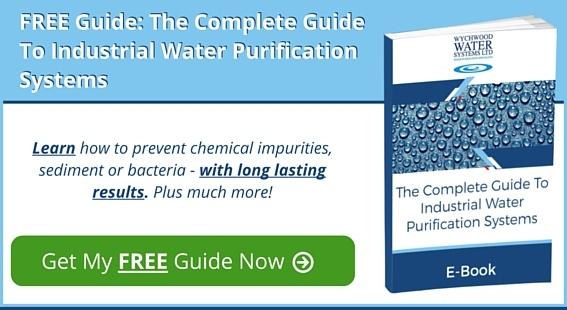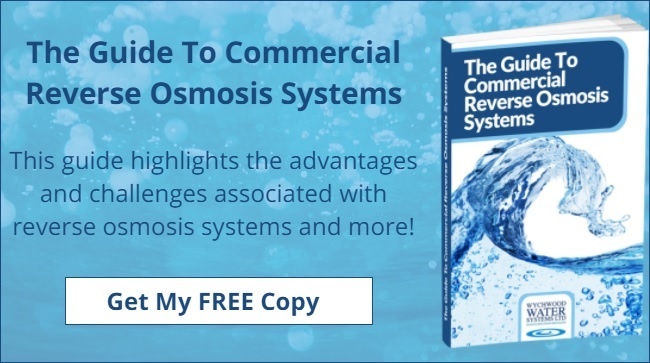
Industrial water treatment is crucial for every process in a manufacturing facility, from cooling and cleaning to rinsing and processing. When water purity cannot be maintained, products and the equipment used to manufacture them can suffer, leading to costly downtime and even costlier equipment repair or replacement.
In order to avoid the premature replacement of components or equipment, it’s essential to understand the following principles of industrial water treatment.
1) Contamination Will Occur
Regardless of the system being used to treat your facility’s water, one thing you must realise is that contamination is going to occur. In order to keep on top of it and maintain high water quality, it’s important to be aware of what kinds of contamination to expect, and how best to deal with them.
- Scaling
When the dissolved mineral salts contained in water precipitate, they form solid deposits, also known as scale. Scale can adhere to metal surfaces, and left unchecked, continue to layer. It can also move through a water treatment system, accumulating at the bottoms of pipes and other components like silt.
Scale is a troublesome contaminant because of its insulating properties. If left to build up on a heat exchanger, for example, scale will cause it to lose efficiency and have to work harder. In pipes, excessive scaling can lead to narrowed widths, increasing the demand on systems by requiring more power to force water through.
Scaling can occur in several industrial water treatment systems. In a reverse osmosis system, for example, scaling can be produced when free chlorine in the water is allowed through the system as the result of not pre-treating feed water with activated carbon. In this case, free chlorine degrades the RO membrane, allowing calcium and magnesium through. These contaminants form scale on the membrane, rendering it ineffective and necessitating frequent replacements.
The best way to deal with scaling is to ensure that membranes are cleaned on a regular basis. Replacement will be needed periodically, but only every three years if the system is healthy.
- Bacteria
Bacteria is another common form of contamination that can affect several types of water treatment system. Because bacteria occurs naturally in water, it is a perpetual threat to every facility’s water supply. There are many potential causes for bacterial growth in a system, because there are many places that bacteria can thrive.
Low system temperatures below 20°C can cause bacterial growth in an industrial water treatment system. Intermittent system use can also result in the growth of bacteria during non-operational periods. Even the speed of water flow through your system can cause bacterial growth. Erratic water levels in pipes can expose places for bacteria to thrive, such as crevices in pipe joints.
Here too, inadequate system maintenance and disinfection can exacerbate the problem of bacteria. Left unchecked, bacterial invasion can become so significant that an entire system needs to be shut down, and meticulous and time-consuming disinfection completed.
The incorrect choice of water treatment system can also allow bacteria into manufacturing water. For example, reverse osmosis can remove bacteria, but perhaps not at the level that a facility needs. In cases where a certain percentage of bacteria needs to be removed, it’s often a good idea to choose a pre or post-treatment system to ensure optimal removal levels are reached. Learn more about the removal of bacteria and reverse osmosis with this article - What Does Reverse Osmosis Remove From Water - And Will It Remove Bacteria?
2) Regular Cleaning Will Be Necessary
Even if your facility’s water treatment system is the most advanced on the market, it will still require cleaning and disinfection, because all of the purifying media used by your system to remove contaminants will eventually become contaminated by dirt or bacteria.
You need to be able to maintain the quality of water needed for your facility’s processes. You also need to ensure you are in compliance with government regulations for water purity; non-compliance can result in all manner of fines, investigations and the like. Regular cleaning of your treatment system will allow for its continual operation, which will help your facility to reach its goals for production and revenue.
The prevention or treatment of contamination can be accomplished in several ways. The resin beds of deionisation systems will need to be removed and recharged with chemical solutions in order to keep removing contaminants. They will also need to be replaced every few years to ensure optimal disinfection. RO membranes will also need to undergo regular cleaning.
3) Maintenance Is Critical To System Health
Regardless of the system being used, regular system maintenance is critical to the health of your facility’s water. The more infrequently a system is maintained, the more opportunities there are for problems and unexpected shut-downs. Maintenance that’s pro-active and that takes all possible problems into account will benefit every facility.
In addition to the maintenance done by employees, you may also benefit from seeking out professional assistance, as your system will need to be recalibrated periodically.
Free Help For Your Industrial Water Treatment System
Maintaining high manufacturing water quality at your facility is no easy task. Thankfully, there’s free help available. Our team at Wychwood have written a Guide to Industrial Water Purification Systems as a comprehensive resource covering all the problem areas your system may encounter. The eBook offers professional advice on how to ensure your system is always operating at its maximum potential. You can download your copy today by clicking here.
Our team can also help you answer any questions you may have about your treatment system. Simply email us on sales@wychwood-water.com.









 We are a specialist independent company involved in water purification and water treatment technologies
We are a specialist independent company involved in water purification and water treatment technologies


